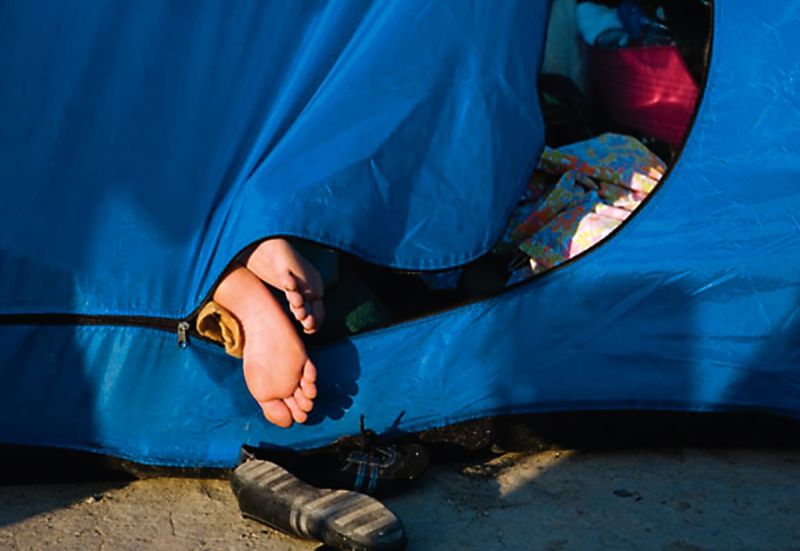Innovatively alleviating homelessness
Though there are just over a handful of homeless persons living in Tent City, which is a piece of tent-filled land off of Madison Avenue in Wooster, it still has community members and organizations alike scrambling to provide safety and shelter for the increasing number of homeless persons residing in Wooster.
They are desperately trying to solve the problem because it stretches far beyond the premises of Tent City. The refuge provides a sobering and blatant view of what it means to be homeless - a visual reminder for anyone crossing downtown Wooster.
The leader of Tent City, Roger Adkins, explained that the issues compounding homelessness for their group are physical disabilities and unemployment. They abide by rules, one of which prohibits the use of drugs and alcohol. Unethical behavior does not seem to be tolerated by those inhabiting Tent City.
Further, such a concerning issue demands a solution, and in order to alleviate it, a task group has been established by the Wooster Hope Center (WHC). Richard Frazier, director of the nonprofit organization, and pastor at DayBreak Community Church, said he has recently received about 165 phone calls from community members hoping to help relieve the problem - evidencing a city of caring and supportive citizens.
"A task group has been formed to see where the WHC can help bridge the current gaps in services such as transitional housing. The main goal of the task group is to bring fresh, innovative ways to assist with homeless and housing issues," explained Frazier
Despite many effective organizations and groups already working to solve the problem, Frazier's task group provides just one more effort, and he hopes for collaboration among these groups, which could be the ultimate defense against such a tough and taboo issue. Moreover, through his work with the community, Frazier regularly encounters homeless persons, which aids in his motivation to solve the problem. He has also witnessed first-hand the power a community can have over their own members' difficulties. He receives a significant amount of donations from businesses and citizens for the WHC.
"We have to work together, we have to. The churches need to work together, the agencies, the organizations need to work together, all for the common good," Frazier continued.
The WHC's vision for a solution involves attacking the problem holistically. He imagines a downtown location with mental health services, education, job skill training, and connections to agencies that provide these types of services as well. An empowerment component would also be woven into the fabric of the transitional house - resulting in individuals who are more prepared to re-enter society. Self-sufficiency would be the ultimate goal of this project.
"We are not trying to say anybody is doing a bad job, because I don't think they are. I just think there's such a greater need, that we have to step up as citizens of this county, as members of this county. It's time for us to step up and take care of our own," Frazier said. "The bad thing is we have people living in tents, but the good thing is people see them now."
In response to the vast number of phone calls he's received, Frazier offered a list of what people can do to begin alleviating the problem. He can be emailed at woosterhopecenter@yahoo.com, where community members can be included on his mailing list. He can also be reached at 330-683-2242. Frazier encouraged anyone with an idea about where this transitional housing can be located, or anyone who is interested in helping, to call the WHC.
"If you already support an organization that helps with poverty issues, please do not stop. In no way is the Wooster Hope Center trying to pull support away from those organizations, we are just another resource that people can use to get help," Frazier began. "The Wooster Hope Center is outgrowing its space and we are looking for a new space or monetary donations to lease the large room on the first floor at 111 S. Buckeye St., above our current location," Frazier said.
For those community members that already belong to a church, Frazier encouraged them to see what they are doing to help resolve the poverty issue, and assist them. He also urged the community to donate hygiene products, cans or plastic bags to the WHC, or to volunteer for the WHC. They are also in need of help with transporting items from the Akron-Canton Regional Food Bank.
"I know we have a good community. I know it's a good county to live in, but we can make it better. There are people that want to help, and I want to say thank you to all the phone calls, and don't stop," Frazier said.

